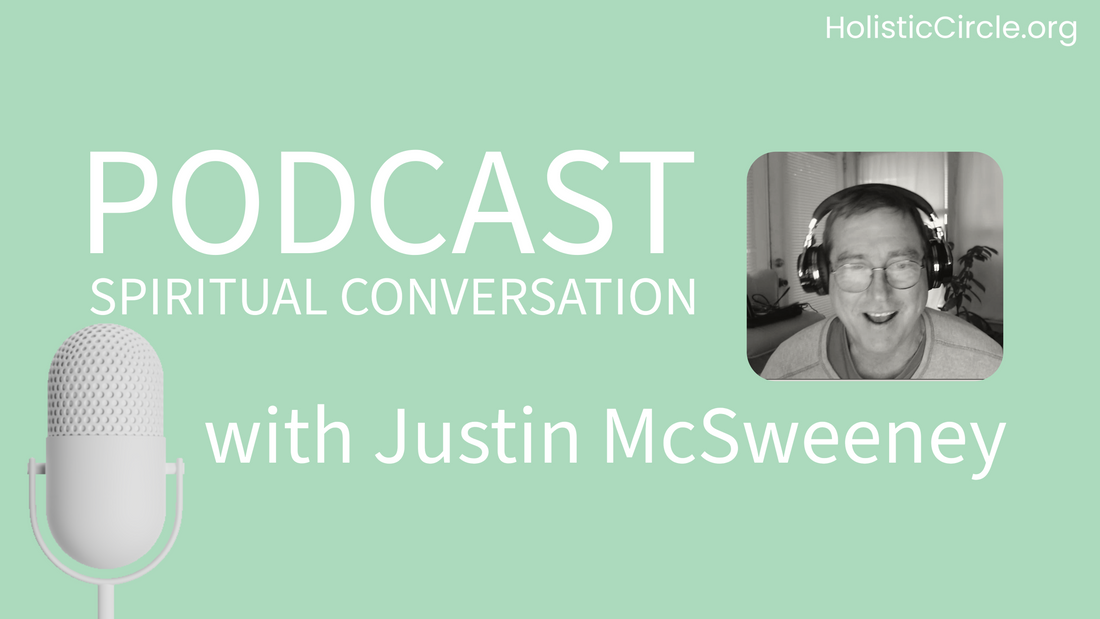
Are We All Just Making It Up? The Philosophy of Meaning with Justin McSweeney
Share
The Deep End of Knowing: A Conversation with Justin McSweeney
In this episode of the Holistic Circle Podcast, Philipp Kobald sits down with Justin McSweeney, a thinker whose passion lies at the crossroads of philosophy, science, and the human search for meaning. It’s a discussion that dances between skepticism and spirituality, logic and faith, and the often-misunderstood nature of belief itself. McSweeney, whose own podcast takes a forensic approach to understanding purpose, peels back the layers of how we construct reality — one idea at a time.
For Justin, inquiry is more than a pastime; it’s a commitment to growth. He draws on ancient Greek skepticism, modern cognitive science, and personal reflection to interrogate what we think we know. In his world, certainty is the enemy of learning, and true understanding often begins when we loosen our grip on the things we hold most dear. “We need to be willing to update our priors,” he says, referencing the mental frameworks we build over time. “If we aren’t open to changing our minds, we aren’t really thinking.”
The conversation veers into the current cultural fascination with trauma — a word that seems to appear in every discussion on healing, self-improvement, and even spirituality. Fifteen years ago, trauma was a clinical term reserved for psychologists; today, it’s an everyday staple in discussions about identity and personal growth. Why? Justin offers a skeptical yet compassionate take. While recognizing its legitimacy, he warns against the dangers of turning it into an all-encompassing explanation for every struggle. “We have to be careful with language,” he notes. “If everything is trauma, then nothing is.”
Philipp, ever the curious host, shifts the conversation toward science’s relationship with spirituality. Is science catching up with mystical traditions? Or are we simply repackaging ancient wisdom in modern language? McSweeney, ever the skeptic, challenges the need to frame spirituality through scientific validation. “Spirituality should be experienced, not proven,” he argues. “When we start demanding scientific evidence for personal experiences, we risk losing the very essence of what makes them meaningful.” It’s a compelling reminder that not all things need empirical justification to be valid.
Perhaps the most thought-provoking segment arrives when the two discuss the self. Is the self an illusion? A story we tell ourselves? Or something more concrete? Justin leans into philosophy, pulling from neuroscience and Buddhist thought to propose a dynamic, ever-changing notion of identity. “We are not fixed beings,” he explains. “We are processes. The self is something we do, not something we are.” It’s an idea that, while challenging, has profound implications for personal growth. If we’re in constant motion, then change isn’t just possible — it’s inevitable.
In the final stretch, the conversation turns to the role of podcasting itself. McSweeney sees his work as a kind of public service, a way to create spaces for deep, reflective conversations in an age of surface-level engagement. “Good dialogue isn’t about winning an argument,” he says. “It’s about expanding the conversation, making room for complexity.” If this episode proves anything, it’s that complexity is something worth embracing.
For those looking to challenge their own assumptions, question what they think they know, and dive into the murky waters of meaning, this conversation is one to listen to. Just be warned: certainty isn’t included in the package.
Hashtags:
#Philosophy #Spirituality #SelfDiscovery #PersonalGrowth #Skepticism #ScienceVsSpirituality #Mindfulness #TraumaHealing #DeepConversations #Podcasting
Contact Information
Visit: HolisticCircle.org
Copyright HolisticCircle.org
YouTube: HolisticCircle Channel
By Philipp Kobald, 2025